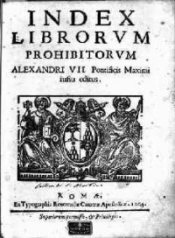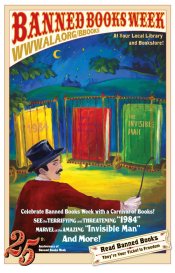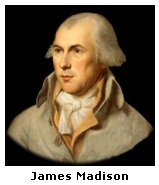
| Illuminations
Home |
|
| Banned
Books |
|
| Banned Books |
|
| Challenged Books |
|
Illuminations and Epiphanies
Banned Books
| President Dwight D.
Eisenhower, perhaps, said it best in an address at Dartmouth in 1953:
Don't think you're going to conceal faults by concealing evidence that they ever existed. Don't be afraid to go in your library and read every book, as long as any document does not offend our own ideas of decency. That should be the only censorship. . . . [Even if authors] think ideas that are contrary to ours, their right to say them, their right to record them, and their right to have them at places where they're accessible to others is unquestioned or it's not America. No person or organization is more vigilant in guarding these rights than the American Library Association (ALA), and for that it should be commended. Yet, it seems to me that the ALA is a
little disingenuous with its annual Banned Book Week pronouncements
regarding the
hundreds of books it implies are "banned" each year in the United
States. That is simply not the case. is a
little disingenuous with its annual Banned Book Week pronouncements
regarding the
hundreds of books it implies are "banned" each year in the United
States. That is simply not the case. In its totals, the ALA includes every single time any single individual has requested that any title be removed from a library. They also include every single time any single individual has requested a book be moved from open to restricted shelves or removed from a mandatory school reading list. In its fine print, the ALA indicates that these books have really not been banned at all, but only "challenged," and in truth, almost no "challenged" books are ever removed from any library or school, and only a very small number are removed from open shelving or reading lists. The ALA's own records indicate that public authorities seldom succumb to such pressures. So, does this mean that Americans don't need to be vigilant with regard to First Amendment rights? Of course not. Although today it is do-gooders of all persuasions that most often seek to control what others may or must read, the founding fathers weren't concerned about whether or  not If a
Caged Bird Sings should be assigned as a mandatory reading in a
middle school English class. Rather, their fear was that those in
positions of power would abuse that power to suppress dissent, and
their goal was, as James Madison presented to Congress, that not If a
Caged Bird Sings should be assigned as a mandatory reading in a
middle school English class. Rather, their fear was that those in
positions of power would abuse that power to suppress dissent, and
their goal was, as James Madison presented to Congress, that The people shall not be deprived or abridged of their right to speak, to write, or to publish their sentiments; and the freedom of the press, as one of the great bulwarks of liberty, shall be inviolable. So . . . what are the books, over the years, that oppressors have banned? Quite a few, in fact. The champion book banners have been the Vatican and totalitarian regimes throughout the world. That does not, however, let more liberal societies off the hook, for they too have occassionally succumbed to the censor's temptation as well. This collection of banned books is by no means complete. I've not included those books that may have caused their authors to be tortured, maimed, or murdered, but were surprisingly otherwise ignored. Neither have I made an attempt to include most of those isolated incidents where books were banned or expurgated by a small town council or single city library or a village highschool, however I think I have included most of the major bannings that have occurred throughout history. And . . . what about our do-gooding friends, the one's who today have the collective knickers of the ALA librarians tied in such knots? What is it that they don't want you to read? |
 Don't join the book
burners.
Don't join the book
burners.